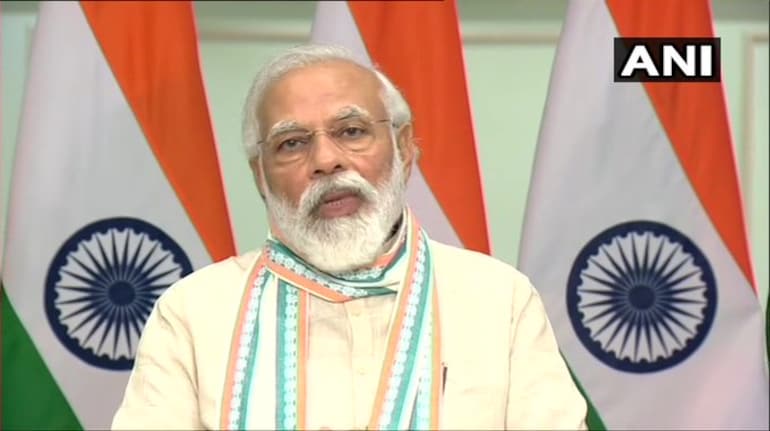



Prime Minister Narendra Modi has said efforts are being made to scale-up daily COVID-19 testing in India to 10 lakh.
Modi made the remarks while inaugurating high throughput COVID-19 testing facilities at three Indian Council of Medical Research (ICMR) laboratories in Mumbai, the National Capital Region and Kolkata on July 27.
“In January, we had only one centre for the corona test, while today about 1,300 labs are working in the whole country for corona testing. Today, more than 5 lakh tests are being conducted in India every day. In the coming weeks, we are trying to upscale it to 10 lakh per day,” Modi said.
India had conducted 1.7 crore COVID-19 tests till July 27, ICMR data shows. Of these, 5.2 lakh tests were conducted on July 27 itself.
Follow our LIVE blog for the latest updates of the novel coronavirus pandemic
Modi said India was in a “much more stable position” than other countries because of the right decisions” taken at the “right time”. The country's COVID-19 death rate was much lower than of "big countries”, he said.
“At the same time, the recovery rate here is much higher than other countries and is improving day by day. Today, the number of people recovered from corona in India is about to reach 10 lakh,” he said.
Modi, while virtually inaugurating the three laboratories, also said that India had managed to scale up the production of PPE kits and N-95 masks.
“Just six months ago, there was not a single PPE kit manufacturer in the country. Today, more than 1,200 manufacturers are producing more than five lakh PPE kits every day. At one point, N-95 masks were also imported. Today more than three lakh N-95 masks are being manufactured in India every day,” he said.
Click here for Moneycontrol’s full coverage of the novel coronavirus pandemic
Discover the latest Business News, Sensex, and Nifty updates. Obtain Personal Finance insights, tax queries, and expert opinions on Moneycontrol or download the Moneycontrol App to stay updated!